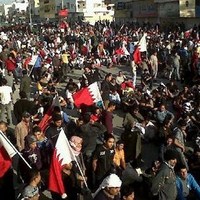On March 8, King Hamad bin Isa al-Khalifa of Bahrain appointed Crown Prince Salman bin Hamad al-Khalifa to serve as deputy prime minister, a move that was widely lauded as injecting new momentum into the national dialogue process between the ruling monarchy and the opposition and sending a positive signal to a long-disheartened opposition. So far the national dialogue has moved forward with high hopes, but much of the discussion has centered on its scope, participation and logistics. The real test of success will be whether the process can resolve the crucial issues of an empowered parliament, electoral gerrymandering and Shiite participation in government.
Optimists in Washington and elsewhere should be under no illusion about the forces still arrayed against compromise in Bahrain. Ironically, a towering figure in the anti-reform camp leads the Bahraini institution that receives the most significant material support from the United States: the commander of the Bahrain Defense Forces (BDF), Field Marshal Khalifa bin Ahmed al-Khalifa. Together with his brother, Royal Court Minister Khalid bin Ahmed al-Khalifa, the field marshal has, over the past two years, wrested control of Bahrain’s reform process from the king and crown prince. It remains uncertain whether the crown prince’s recent elevation to a position with ill-defined scope is enough to shift this balance of power.
This hard-liner faction’s intransigence was highlighted on the eve of the opening of the national dialogue, when the BDF’s official spokesman tweeted derisively that the impending talks were a dialogue of “donkeys.” Any compromise with the Shiite-led opposition, the field marshal’s mouthpiece warned, would be tantamount to a “coup” in the country. This echoed comments made by the BDF commander himself in Arabic press interviews in March 2012, when he accused the U.S. of seeking to sow discord among the Gulf states and secretly conspiring with the Bahraini opposition.

